Bookshelf
Bookshelf Archive 2013
Faculty books and productions from 2013.
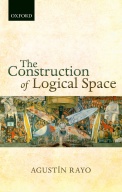
Agustín Rayo
The Construction of Logical Space
Oxford University Press, 2013
How do we shape our conception of logical space?
Our conception of logical space is the set of distinctions we use to navigate the world. In The Construction of Logical Space Agustín Rayo defends the idea that one's conception of logical space is shaped by one's acceptance or rejection of 'just is'-statements: statements like "to be composed of water just is to be composed of H2O," or "for the number of the dinosaurs to be zero just is for there to be no dinosaurs."
Website
Agustín Rayo is a Professor of Philosophy in the Department of Linguistics and Philosophy
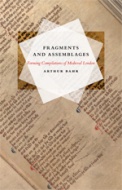
Arthur Bahr
Fragments and Assemblages: Forming Compilations of Medieval London
The University of Chicago Press, 2013
Breaking news from the 14th century
While reading online, do you sometimes find yourself going from reading articles on, say, politics to poetry to humor? If so, your experience is rather medieval, says Arthur Bahr, an associate professor of literature at MIT whose first book digs into the eclectic, textually linked reading choices of people in medieval London. Using compilations from fourteenth-century London as case studies, Fragments and Assemblages argues that we can productively bring comparable interpretive strategies to bear on the formal characteristics of both physical manuscripts and literary works.
Story at SHASS News | Story at MIT News
Arthur Bahr is Associate Professor of Literature
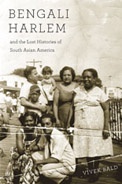
Vivek Bald
Bengali Harlem and the Lost Histories of South Asian-America
Harvard University Press, 2013
A hidden history revealed
Of his new book, scholar and documentary filmmaker Vivek Balda says, “It began as a story about the South Asian diaspora, but it became clear that it was also a story about African-American and Puerto Rican neighborhoods, and the families, friendships and communities that South Asian Muslims formed there."
Story at MIT News | Book website
Vivek Bald is an Assistant Professor of Writing and Digital Media in the Comparative Media Studies / Writing program.
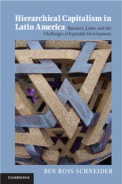
Ben Ross Schneider
Hierarchical Capitalism in Latin America
Cambridge University Press, 2013
A new path for growth
MIT political scientist Ben Ross Schneider sets out an agenda for growth with greater equality in Latin America. Hierarchical Capitalism in Latin America argues that Latin America has a distinctive, enduring form of hierarchical capitalism characterized by multinational corporations, diversified business groups, low skills, and segmented labor markets. This book is intended to open a new debate on the nature of capitalism in Latin America and link that discussion to related research on comparative capitalism in other parts of the world.
Story
Ben Ross Schneider is Ford International Professor of Political Science and Director of the MIT Brazil program.
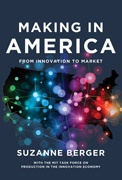
Suzanne Berger
wtih the Task Force on Production in the Innovation Society
Making in America
MIT Press, 2013
Achieving an innovation nation
America is the world leader in innovation, but many of the innovative ideas that are hatched in American start-ups, labs, and companies end up going abroad to reach commercial scale. Apple, the superstar of innovation, locates its production in China (yet still reaps most of its profits in the United States). When innovation does not find the capital, skills, and expertise it needs to come to market in the United States, what does it mean for economic growth and job creation? Inspired by the MIT Made in America project of the 1980s, Making in America brings experts from across MIT to focus on a critical problem for the country.
Story at MIT News | 3Q with Suzanne Berger | Slice of MIT
Suzanne Berger is the Dorman-Starbuck Professor of Political Science and together with Institute Professor Phillip Sharp chaired MIT’s Production in the Innovation Economy (PIE) project.

Manduhai Buyandelger
Tragic Spirits: Shamanism, Memory, and Gender in Contemporary Mongolia
University of Chicago Press, 2013
The surprising story of Mongolian shamanism
MIT Anthropologist Buyandelger finds that after Soviet domination, a rebirth of shamanism helped Mongolia rewrite its own history.
Story at MIT News
“Buyandelger explores how people interpret, resist, and accommodate socio-economic transformations, both by reviving traditional cultural practices and by creating new ones.”
— Professor Susan Silbey, Head, MIT Anthropology
Buyandelger received the 2013 Levitan Prize in the Humanities, a $25,000 research grant that will support her in-depth ethnographic study of parliamentary elections in Mongolia, with specific emphasis on the experience of female candidates.
Story
Manduhai Buyandelger is an Associate Professor of Anthropology.
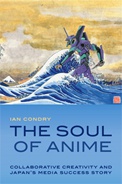
Ian Condry
The Soul of Anime: Collaborative Creativity and Japan's Media Success Story
Duke University Press, 2013
Why is Japanese anime a global hit?
“Anime is imbued with a sense of social energy,” Condry says. His new book identifies audience participation and creative collaboration as the soul of anime, the key to its worldwide popularity.
Story at MIT News
In The Soul of Anime, Ian Condry explores the emergence of anime, Japanese animated film and television, as a global cultural phenomenon. Drawing on ethnographic research, including interviews with artists at some of Tokyo's leading animation studios—such as Madhouse, Gonzo, Aniplex, and Studio Ghibli—Condry discusses how anime's fictional characters and worlds become platforms for collaborative creativity.
Ian Condry is Associate Professor of Comparative Media Studies, and head of the Foreign Languages and Literatures Section.
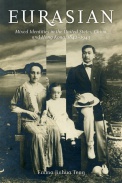
Emma Teng
Eurasian: Mixed Identities
in the United States, China, and Hong Kong, 1842–1943
University of California Press, 2013
Layered inheritances and complex identities
In Eurasian, Emma Jinhua Teng compares Chinese-Western mixed-race families in the United States, China, and Hong Kong, examining both the range of ideas that shaped the formation of Eurasian identities in diverse contexts and the claims set forth by individual Eurasians concerning their own identities. Teng argues that Eurasians were not universally marginalized during this era, as is often asserted. Rather, Eurasians often found themselves facing contradictions between exclusionary and inclusive ideologies of race and nationality, and between overt racism and more subtle forms of prejudice that were counterbalanced by partial acceptance and privilege.
Story at MIT News
Emma Jinhua Teng is Director of the Women's and Gender Studies Program, T.T. and Wei Fong Chao Associate Professor of Asian Civilizations, and Associate Professor of Chinese Studies.

Loren Graham
Death at the Lighthouse:
A Grand Island Riddle
Arbutus Press, 2013
Mystery on Grand Island
Sometime after after Loren Graham and his wife purchased the Old North Lighthouse on Grand Island near Pictured Rocks National Lakeshore, Graham discovered a yellowing newspaper clipping from the Detroit Free Press from June 15, 1908. It read: Grand Island Lighthouse keeper and his assistant believed to be victims of brutal murder and robbery. What happened to the 1908 lighthouse keeper and his assistant? Graham set out to answer this question.
Loren Graham is the Professor of the History of Science in the Program in Science, Technology and Society Emeritus.
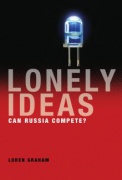
Loren Graham
Lonely Ideas:
Can Russia Compete?
MIT Press, 2013
Sources of Innovation | how society affects science/technology
Russia, despite its epic intellectual achievements in music, literature, art, and pure science, is a negligible presence in world technology. Despite its current leaders’ ambitions to create a knowledge economy, Russia is economically dependent on gas and oil. In Lonely Ideas, Loren Graham investigates Russia’s long history of technological invention followed by difficulties in implementation and taking ideas to market.
Loren Graham is the Professor of the History of Science in the Program in Science, Technology and Society Emeritus.
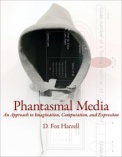
D. Fox Harrell
Phantasmal Media: An Approach to Imagination, Computation, and Expression
MIT Press, 2013
In Phantasmal Media, D. Fox Harrell considers the expressive power of computational media. He argues, persuasively, that the great expressive potential of computational media comes from the ability to construct and reveal "phantasms" — his word for blends of cultural ideas and sensory imagination, which include sense of self, metaphors, social categories, narrative, and poetic thinking.
Story at MIT News | MIT Press Blog
D. Fox Harrell is Associate Professor of Digital Media

Richard Locke
The Promise and Limits of Private Power:
Promoting Labor Standards in a Global Economy
Cambridge University Press, 2013
Goverments and the private sector must collaborate to create safe factories and just global supply chains
Locke has made hundreds of visits to factories around the world, heading a team of researchers. His conclusion, detailed in The Promise and Limits of Private Power, is that private oversight by multinational firms is not enough to eliminate workplace dangers and inequities. Governments must uphold better factory standards as well. Protecting workers involved in the global supply chain will require three things: actions by firms themselves; long-standing supply-chain relationships, and government effort.
Story at MIT News | Article at Boston Review
Richard M. Locke is a former MIT Professor of Management and Political Science.
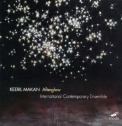
Keeril Makan
Afterglow
Mode Records, 2013
Afterglow is the outcome of hours spent listening to the harmonic resonance of specific notes and chords, and to the durations of the resonances. The simplicity of the materials beguiles the listener into hearing beyond the immediate gesture to become aware of its “afterglow,” the sympathetic vibrations of the unplayed strings within the piano.
Keeril Makan is Associate Professor of Music.
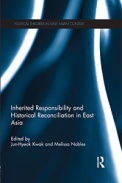
Melissa Nobles,
with Jun-Hyeok Kwak
Inherited Responsibility and Historical Reconciliation in East Asia
Routledge Press, 2013
Paths to reconciliation, atonement, and peaceful coexistence
“All societies periodically have to do soul-searching,” says Melissa Nobles, the Arthur and Ruth Sloan Professor of Political Science, and Head of Political Science. In her research, Nobles has developed a deep understanding of how different nations go about the process of self-examination, confront histories of injustice, and attempt to right the wrongs of the past.
Story and Profile at MIT News
Melissa Nobles is the Arthur and Ruth Sloan Professor of Political Science.

Robert Fogelson
The Great Rent Wars: New York, 1917-1929
Yale University Press, 2013
How did rent control come to exist?
Historian Robert Fogelson’s book tells the story. There was an almost complete cessation of residential construction in New York City during and after WWI. The result was a serious housing shortage and soaring rents. In response, women played a large role in organizing strikes that led to rent-control programs in NYC — and elsewhere in the country. Written by one of the country’s foremost urban historians, The Great Rent Wars explores the heated debates over landlord-tenant law, housing policy, and other issues that are as controversial today as they were a century ago.
Story
Robert Fogelson is Professor of Urban Studies and History.
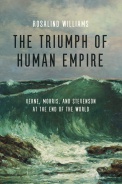
Rosalind Williams
The Triumph of Human Empire
University of Chicago Press, 2013
What is the human empire?
Rosalind Williams explores the overarching historical event of our time: the rise and triumph of human empire, the apotheosis of the modern ambition to increase knowledge and power in order to achieve world domination. Confronting an intensely humanized world was a singular event of consciousness; Williams shows how Verne, Morris, and Stevenson experimented expressed a growing awareness of the need for a new relationship between humans and Earth.
3 Questions: Interview with Rosalind Williams
The Economist names The Triumph of Human Empire one of the best books of 2013
Rosalind Williams is Bern Dibner Professor of the History of Science and Technology in the Program of Science, Technology, and Society.

Richard J. Samuels
3.11: Disaster and Change in Japan
Cornell University Press, 2013
Taking stock after the disaster
After the catastrophic earthquake, tsunami, and nuclear meltdowns of March 11, 2011 in Japan, many observers expected a wave of political and social change to sweep the island nation. In his new book, 3.11, MIT political scientist Richard Samuels delivers the first full-length scholarly assessment of the disaster's impact on Japan’s government and society. Samuels explores Japan’s post-earthquake actions in three key sectors: national security, energy policy, and local governance.
Story at MIT News
3.11: Disaster and Change in Japan Website
Richard J. Samuels is Ford International Professor of Political Science, Director of the Center for International Studies, and Director of the MIT-Japan Program.

Christine J. Walley
Exit Zero: Family and Class in Postindustrial Chicago
University of Chicago Press, 2013
Understanding the growing inequality in the U.S.
In 1980, Christine Walley’s world was turned upside down when the steel mill in Southeast Chicago where her father worked closed abruptly. In the ensuing years, thousands of other area residents would also lose their jobs in the mills—one example of the vast deindustrialization occurring across the U.S. The disruption propelled Walley into a career as a cultural anthropologist. In Exit Zero, she brings her anthropological perspective home, examining the human cost of deindustrialization.
"If you want to understand the expanding class inequality in the United States, one of the places you have to look is the long-term impact of deindustrialization. We have to think historically about how we got into this position and how we can come out of it.” Walley's new book and accompanying documentary recount the aftermath when steel plants suddenly closed in the American heartland.
Story+ Video at MIT News
Christine J. Walley is Associate Professor of Anthropology.
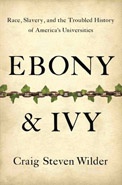
Craig Steven Wilder
Ebony and Ivy:
Race, Slavery, and the Troubled History of America's Universities
Bloomsbury Press, 2013
"A groundbreaking history that will contribute to a reappraisal of some deep-rooted founding myths.” — Kirkus
Illuminating the role of slavery in American universities
A study that is the first of its kind, Ebony and Ivy looks "beyond particular campuses to take a broader look at the role of slavery in the growth of America’s earliest universities," which, Wilder reveals were more than just "innocent or passive beneficiaries" of wealth derived from the slave trade. Wilder "shows that what happened at one institution wasn’t simply incidental or idiosyncratic," said James Wright, a former president of Dartmouth College. “Slavery was deeply embedded in all our institutions, which found ways to explain and rationalize slavery, even after the formation of the American republic.” — New York Times
Story at MIT News | NPR Interview with Craig Wilder
Craig Steven Wilder is Professor of American History at MIT, and the author of A Covenant with Color and In the Company of Black Men.
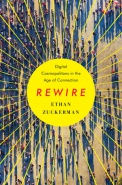
Ethan Zuckerman
Rewire: Digital Cosmopolitans in the Age of Connection
W.W Norton & Company, Inc., 2013
Are you a digital cosmopolitan?
In his new book, Rewire, and in his research group at MIT, Ethan Zuckerman encourages us to explore, to engage others, and to develop more "cognitive diversity." Zuckerman explains why the technological ability to communicate with someone does not inevitably lead to increased human connection. At the most basic level, our human tendency to “flock together” means that most of our interactions, online or off, are with a small set of people with whom we have much in common.
Story at MIT News
Ethan Zuckerman is a Principal Research Scientist in the Media Laboratory.